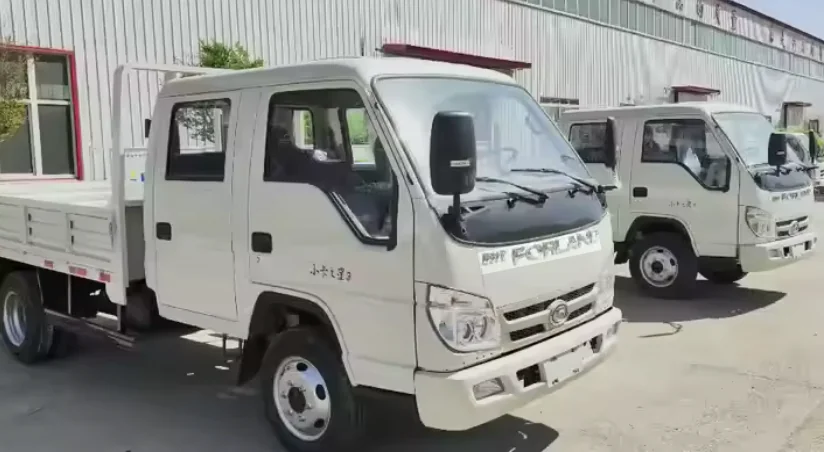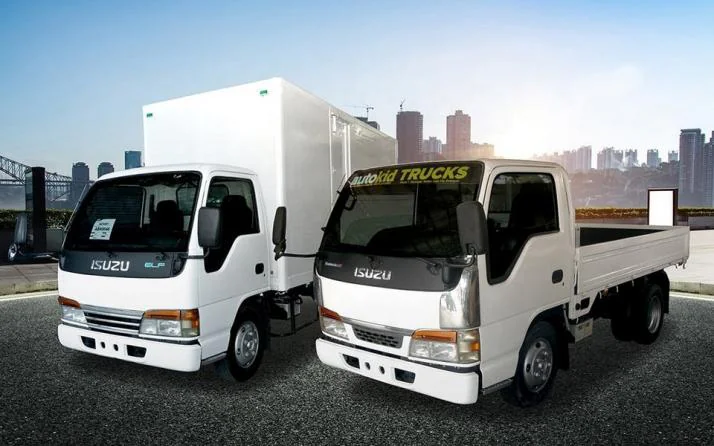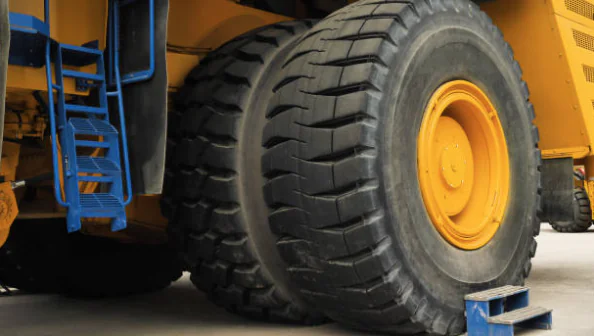Tractor tire, also known as agricultural tire or tractor tyre, is the essential components of agricultural machinery that plays an important role in modern farming and construction. Tractor tire are specifically designed to provide tractors with the necessary traction, stability, and durability required for various tasks on fields and construction sites. This article delves into the intricacies of tractor tires, exploring their types, functions, and maintenance, ensuring a comprehensive understanding of their importance in the agricultural and construction industries. We think it will help you when choosing right tractor tire.
1. What Is Tractor Tire?
A tractor tire is a specialized tire designed to meet the demanding work environments that tractors face in agricultural settings. Unlike car tires, which prioritize smooth rides on pavement, tractor tires are specifically built to provide traction, durability, and minimize soil compaction.
Tractor tires are larger and more robust than regular tires, allowing them to handle heavy loads and challenging terrain. They are engineered with unique tread patterns and construction to ensure optimal performance in different soil conditions such as mud, sand, and loose surfaces. The tread pattern is designed to maximize traction and minimize slippage, enabling tractors to move efficiently through fields.
Forlander Tire, as a trusted provider, offers a wide range of heavy-duty tractor tires designed for various agricultural applications. These tires are available in different sizes and types to suit different tractor models, specific applications, and soil conditions. Whether it’s plowing, tilling, planting, harvesting, or hauling heavy loads, Forlaner’s tractor tires are designed to provide the necessary grip, load-bearing capacity, and durability required for efficient farm operations.
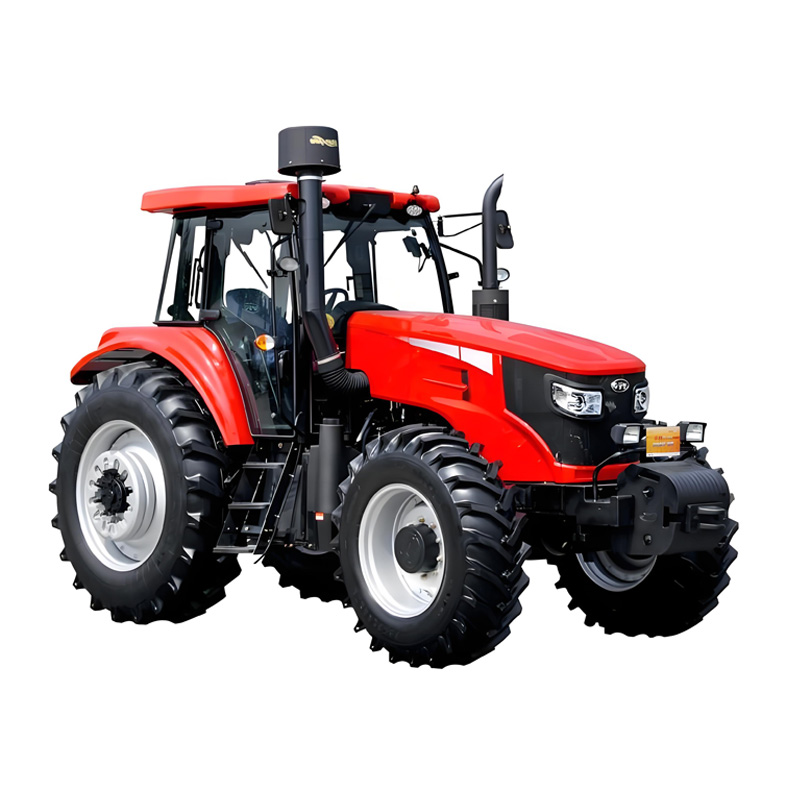
2. What Are Types of Tractor Tire?
Tractor tires come in various types, each designed for specific purposes and terrains. Understanding the different types of tractor tires can help farmers and operators choose the most suitable tire for their specific needs. Here are the primary types of tractor tires:
2.1 R1 Tires
Also known as agricultural tires, R1 tires are the most versatile and widely used tires in agriculture. They feature deep lugs that provide excellent traction in muddy and loose soil conditions. R1 tires are ideal for general-purpose farming tasks and are commonly used in plowing, tilling, and other field operations.
2.2 R1W Tires
R1W tires share similarities with R1 tires but have deeper treads. This design offers superior traction in wet and heavy soil conditions. R1W tires are particularly suitable for regions with high rainfall or areas where the soil tends to retain moisture.
2.3 R2 Tires
R2 tires, also known as rice and cane tires, possess even deeper lugs compared to R1 and R1W tires. They are specifically designed for very wet and muddy conditions, such as rice paddies. These tires excel in providing exceptional traction in extremely challenging terrains, allowing tractors to navigate effectively through waterlogged or heavily saturated fields.
2.4 R3 Tires
R3 tires, commonly referred to as turf tires, have shallower treads. They are designed to minimize soil disturbance, making them suitable for grass and turf applications. R3 tires are often used on golf courses, sports fields, and other areas where preserving the quality of the ground is essential.
2.5 R4 Tires
R4 tires, also known as industrial tires, have a more robust construction and a tread pattern that strikes a balance between traction and minimal soil disturbance. They are versatile tires suitable for both agricultural and construction tasks. R4 tires are commonly used on tractors that need to transition between working in the field and operating on harder surfaces. They provide good traction on gravel, sand, and other firm terrains.
2.6 Construction Tires
Construction tires are specifically designed for heavy-duty tasks on construction sites. They are generally more robust and have a tread pattern optimized for traction on hard surfaces like gravel, sand, and rocky terrain. These tires offer durability and stability when tractors are used for earthmoving, excavation, and other construction-related activities.
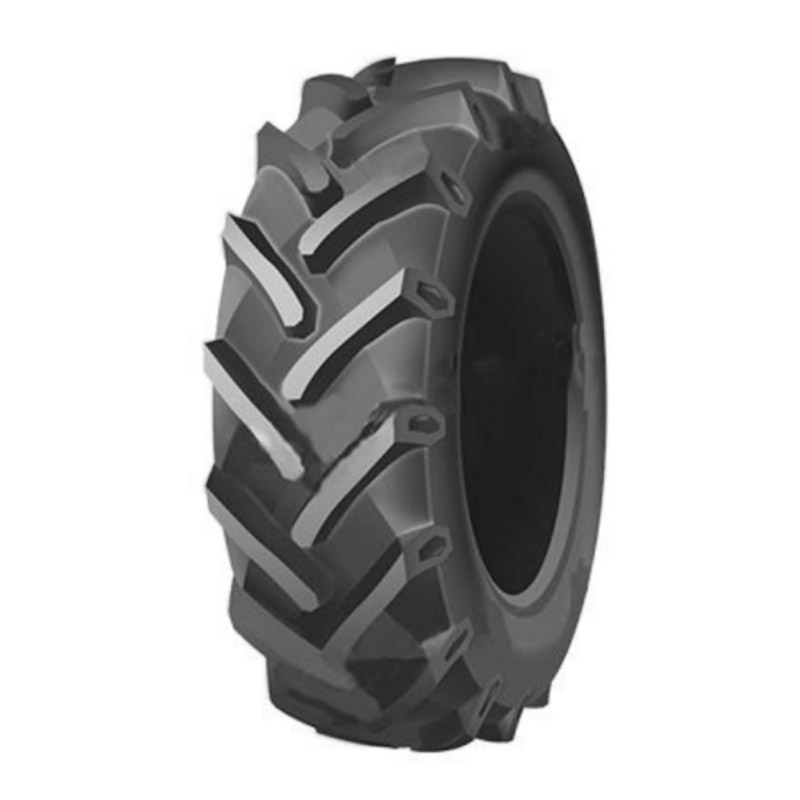
3. What Are Advantages of Tractor Tire?
Tractor tires offer advantages such as superior traction, high load-bearing capacity, durability, soil preservation, and versatility. These features make them indispensable for efficient and effective agricultural operations, enabling tractors to navigate challenging terrains and carry out a wide range of tasks with reliability and performance.
3.1 Traction
Tractor tires are specifically designed to provide excellent traction. The tread patterns on these tires are engineered to dig into the soil, ensuring the tractor can move forward without slipping. This is crucial in agricultural settings where the terrain can be challenging, with loose or muddy soil.
3.2 Load-Bearing Capacity
Tractor tires are built to handle heavy loads. Tractors often carry significant weight, including their own machinery, additional equipment, and the loads they tow or carry. The construction of tractor tires ensures they can support these heavy loads without compromising performance.
3.3 Durability
Tractor tires are subjected to harsh conditions and rough terrains. They are designed to be highly durable, using high-quality materials and construction techniques. This durability makes them resistant to punctures, cuts, and general wear and tear, allowing them to withstand the demands of agricultural work and extend their lifespan.
3.4 Soil Preservation
Some types of tractor tires, such as R3 and certain specialty tires, are specifically designed to minimize soil compaction and disturbance. These tires distribute the weight of the tractor more evenly, reducing the impact on the soil. This helps preserve soil health and structure, creating optimal conditions for crop growth.
3.5 Versatility
Modern tractor tires are often designed to be versatile, capable of performing well in various conditions. For example, R4 tires are suitable for both agricultural fields and construction sites, providing flexibility for operators who need to switch between different tasks. This versatility ensures that tractor tires can adapt to different applications and provide optimal performance across diverse environments.
4. How To Choose Right Tractor Tire?
The right tractor tire selection will enhance traction, stability, and durability, leading to improved productivity, reduced downtime, and overall cost savings in your agricultural or construction operations.
4.1 Soil Conditions
The type of soil on your farm or work site plays a significant role in tire selection. Different tire types are designed to perform better in specific soil conditions. Evaluate the soil’s moisture content, compaction, and texture, as well as any potential hazards like rocks or debris.
4.2 Terrain
Consider the terrain on which the tractor will be operating. Whether it’s flat, hilly, muddy, or rocky, the terrain affects the tire’s traction, stability, and durability. Choose tires that can handle the specific challenges posed by the terrain.
4.3 Intended Applications
Determine the primary tasks the tractor will be performing. Are you primarily engaged in field work, towing heavy loads, or operating in both agricultural and construction settings? Different tire types offer varying performance characteristics, such as traction, load-bearing capacity, and soil compaction, so choose tires that align with your specific applications.
4.4 Load Requirements
Consider the weight and load-carrying capacity of the tractor. Tires should be able to support the weight of the machinery, additional equipment, and any loads being towed or carried. Ensure that the chosen tires have the appropriate load rating to handle the expected loads.
4.5 Budget
Set a budget for tire purchase and consider the long-term value. While high-quality tires may have a higher upfront cost, they often offer better durability and performance, resulting in lower maintenance and replacement expenses over time.
4.6 Tire Maintenance
Consider the maintenance requirements of the tires you are considering. Some tire types may require more frequent inspections, rotations, or pressure adjustments. Factor in the time and effort needed to maintain the tires properly.
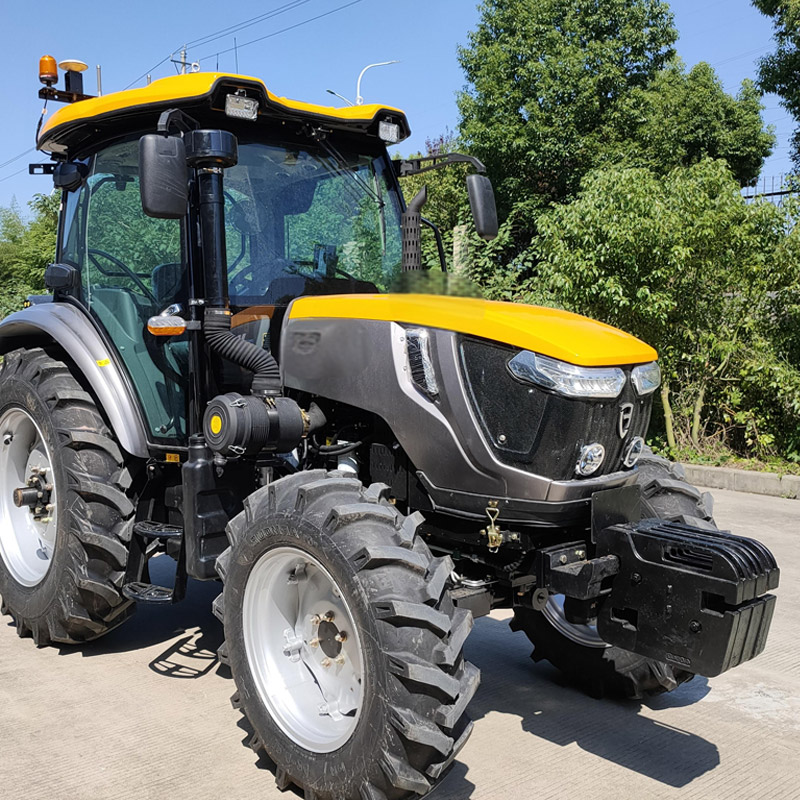
5. How To Maintain Tractor Tire?
Proper maintenance and care of tractor tires are essential to ensure their longevity and performance. Here are some key tips:
5.1 Regular Inspection
Regularly inspect your tractor tires for signs of wear, damage, or punctures. Look for cracks, cuts, and bulges, and ensure that the tread depth is sufficient for the tasks at hand.
5.2 Proper Inflation
Maintaining the correct tire pressure is crucial for optimal performance and longevity. Over-inflated tires can lead to excessive wear and a rough ride, while under-inflated tires can cause poor traction and increase the risk of punctures. Always refer to the manufacturer’s guidelines for the recommended tire pressure.
5.3 Alignment and Balancing
Ensure that your tractor’s wheels are properly aligned and balanced. Misalignment can cause uneven tire wear and reduce the efficiency of your tractor. Regularly check and adjust the alignment as needed.
5.4 Cleaning
Keep your tires clean to prevent the buildup of mud, debris, and chemicals that can cause deterioration. After working in particularly harsh conditions, such as muddy fields or construction sites, clean your tires thoroughly.
5.5 Storage
When not in use, store your tractor tires in a cool, dry place away from direct sunlight and sources of ozone, such as electric motors. Proper storage can prevent premature aging and degradation of the tire material.
5.6 Rotation
If your tractor has multiple tires, consider rotating them periodically to ensure even wear. This practice can extend the lifespan of your tires and improve overall performance.
6. What Are Innovations for Tractor Tire?
Recent advancements in tractor tire technology have led to the development of tires with improved performance, durability, and sustainability. Some notable innovations include:
6.1 Radial Tires
Radial tires have become increasingly popular in the agricultural sector due to their superior traction, durability, and fuel efficiency compared to traditional bias-ply tires. The radial construction allows the tire to flex more, providing a larger contact area with the ground, which improves traction and reduces soil compaction.
6.2 Low-Pressure Tires
Low-pressure tires, also known as flotation tires, are designed to distribute the weight of the tractor more evenly, reducing soil compaction. These tires are particularly useful in wet and soft soil conditions, where traditional tires might sink and cause damage to the field.
6.3 Smart Tires
The integration of smart technology in tractor tires is an emerging trend. These tires are equipped with sensors that monitor various parameters such as tire pressure, temperature, and tread wear in real-time. This data can be transmitted to the operator’s dashboard or a mobile device, allowing for proactive maintenance and optimizing tire performance.
6.4 Sustainable Materials
Manufacturers are increasingly exploring the use of sustainable materials in the production of tractor tires. This includes the use of bio-based materials and recycling old tires to reduce the environmental impact of tire manufacturing.
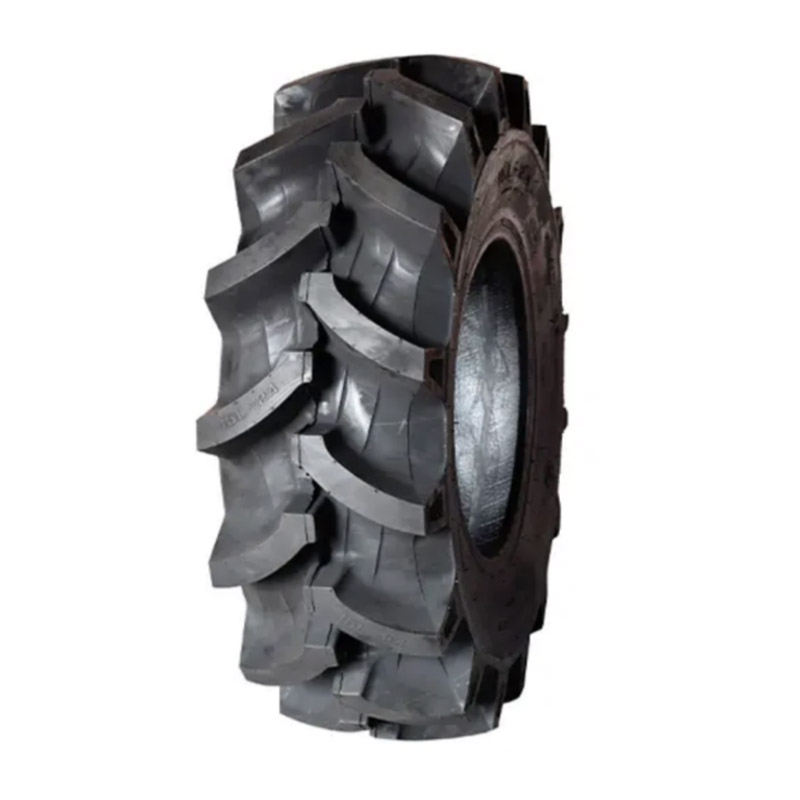
7. Conclusion
Tractor tires are an indispensable component of modern agriculture and construction. Their design and functionality are critical to the performance, efficiency, and safety of tractors. By understanding the different types of tractor tires, their functions, and proper maintenance practices, operators can ensure that their machinery operates at its best, leading to increased productivity and longevity of the tires.
Innovations in tire technology continue to push the boundaries of what is possible, offering improved performance, durability, and sustainability. As the agricultural and construction industries evolve, so too will the technology and design of tractor tires, ensuring they remain a vital asset in these fields.
As the OTR tire manufacturer and supplier, Forlander Tire offers OEM/ODM tractor tire in custom size at best factory price.
Any questions, please contact us.
